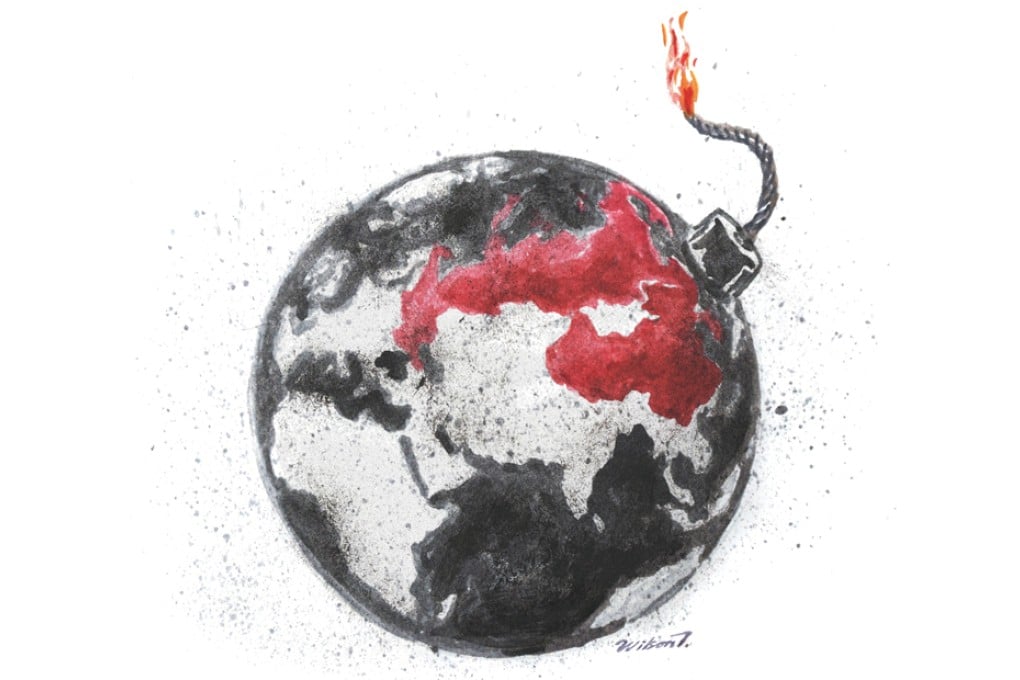Sino-Russian entente would move the world a step closer to 1914
Artyom Lukin says the US policy of containment is pushing China and Russia ever closer to forming a powerful anti-Western alliance, greatly raising the possibility of a third world war

Whereas the first two world wars broke out and were fought mainly in Europe, the third world war, if it is not avoided, will most probably erupt in the Asia-Pacific region. Quite a few scholars and political leaders have found striking similarities between what took place in Europe before the first world war and what we are now witnessing in Asia. The current security situation in the Asia-Pacific - with competing sovereignty claims, the rise of nationalism among both major and lesser countries, and great power rivalry - increasingly resembles Europe a century ago.
A world war is a very special kind of military conflict - one which features a clash of two mighty coalitions led by great powers and possessing roughly comparable strategic resources, so that one side will not easily and swiftly prevail over the other. Are we going to see this sort of war breaking out in the Asia-Pacific?
China is, of course, the rising power whose growing ambitions put it straight on a collision course with the incumbent hegemon - the United States - much like Anglo-German antagonism set the stage for the first world war. However, even if China becomes, as widely predicted, the No 1 economy and manages to close the military gap with the US, this will not be nearly enough to mount a viable challenge to US hegemony. For China would have to confront not the US alone but the US-led bloc, counting, among others, Japan, Canada, Australia, and perhaps India.
Beijing currently has just one formal ally - North Korea, while Pakistan can be viewed as something of a de facto ally, at least vis-à-vis India. Although valuable to China, these countries can hardly be regarded as huge strategic assets. China lacks a dependable ally of a truly great power standing. The only plausible candidate is Russia. An alliance with Moscow would no doubt embolden Beijing.
With Moscow as a close friend, China could be confident about the security of its northern borders and could count on unimpeded access to Russia's natural resources. Thus, Beijing would be much less vulnerable to naval blockades that the US and its maritime allies would be sure to use in case of a serious confrontation.
Should they form an entente, Moscow and Beijing could have Central Asia, as well as Mongolia, to themselves, effectively shutting out all external powers from the heart of Eurasia. An alliance with Moscow would also put Russia's military-industrial complex and its vast military infrastructure in Eurasia at Beijing's service. What might ultimately emerge is a Eurasian league, which, in controlling the continental heartland, would be reminiscent of the Central Powers alliance formed in the middle of Europe by Imperial Germany and the Habsburg empire.
There is a strong tendency in the West to underestimate the potential for a Russia-China entente. A Sino-Russian strategic partnership is often portrayed as an "axis of convenience" founded on a shaky basis. Moscow, the argument goes, will be loath to form an alliance with Beijing because it distrusts and fears a rising China. The main problem with such thinking is that the US-led West is seen by Moscow as a much bigger threat than China. The consensus in the Kremlin is that, for at least the next 20 years, China will not pose a threat to Russia, Beijing's and Moscow's common foe being the US.